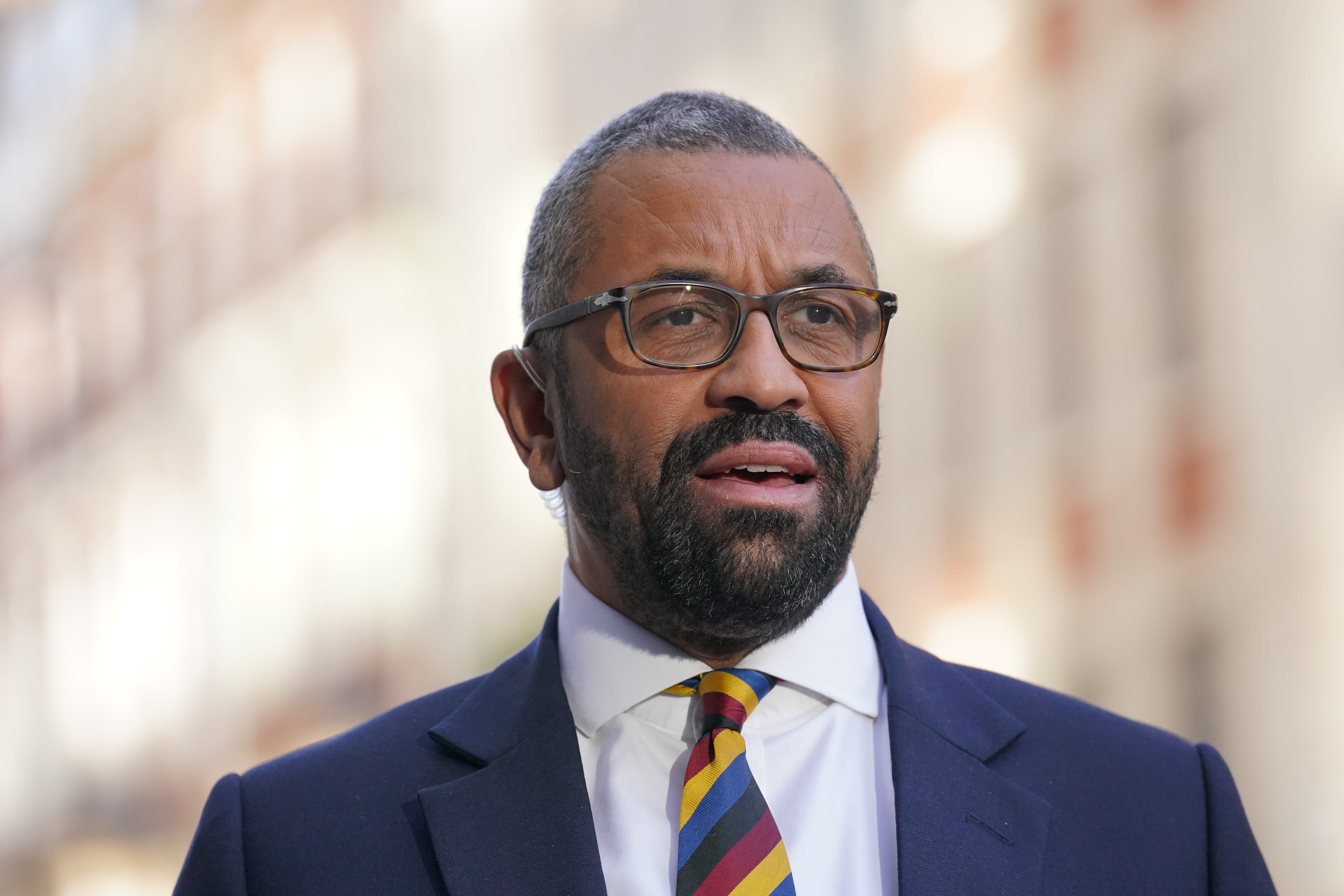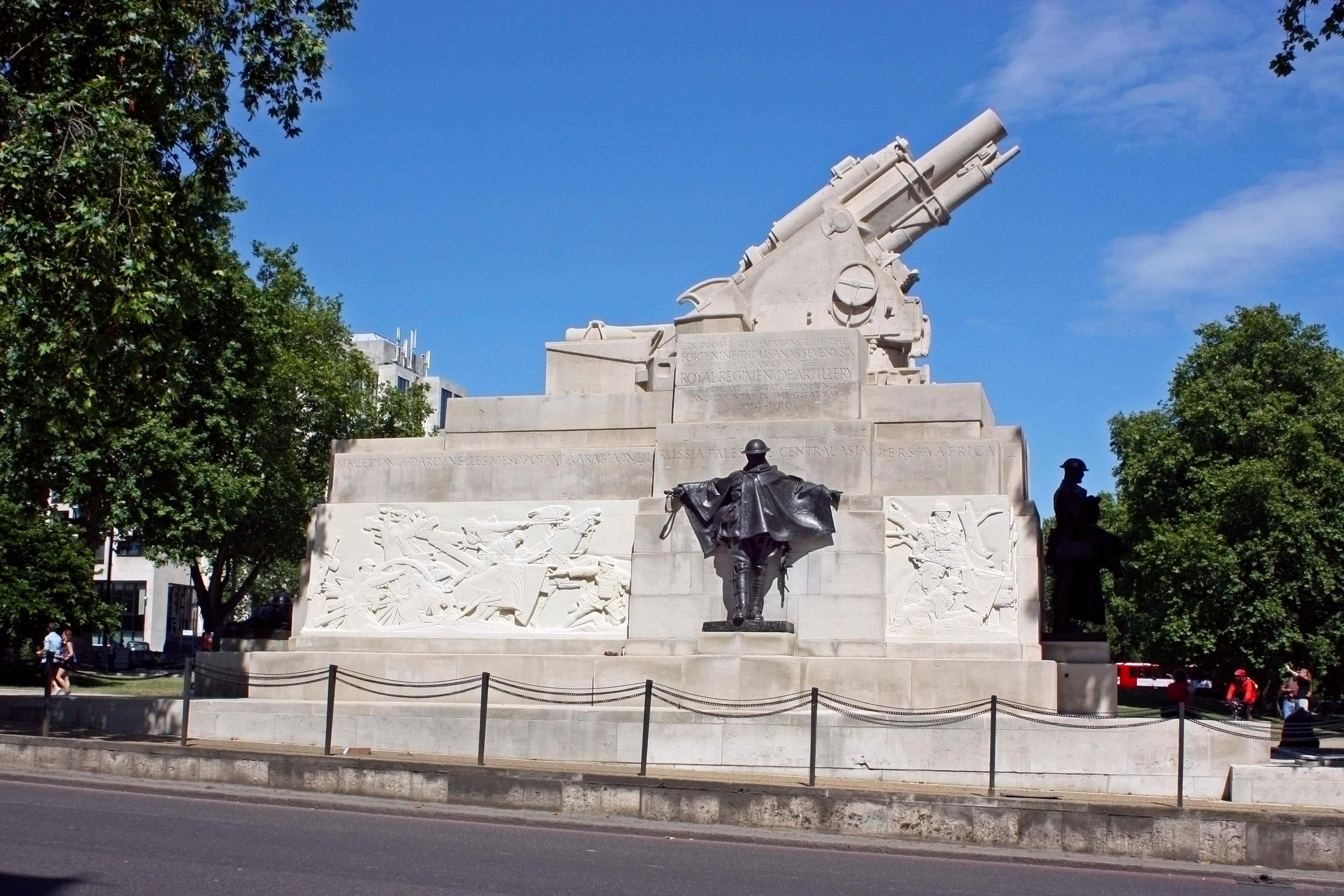James Cleverly considering law change to ban protesters from climbing on war memorials
James Cleverly ‘determined’ to look at laws after people climbed on the Royal Artillery Memorial after a pro-Palestine demonstration

The new home secretary is considering changing the law to give police powers to prevent “deeply disrespectful” protesters clambering on war memorials.
It comes after people climbed on the Royal Artillery Memorial at Hyde Park Corner in central London after a pro-Palestine demonstration outside the Houses of Parliament on Wednesday evening – but police said no laws had been broken.
James Cleverly, who served in the Royal Artillery, said: “We’re going to look at this. We are absolutely determined to look at this. [Veterans minister] Johnny Mercer, a former gunner officer - the Royal Artillery was my regiment as well, that’s my regimental memorial.”
The Home Secretary told LBC: “I’m not going to let my personal feelings cloud my judgment on this but it is clearly wrong, and the police have said that they recognise it is deeply disrespectful for people to climb on war memorials.
“We have made a commitment to review the legislation around public order policing.
“If the police - and I’m going to look at this in real detail - if the police need more powers to make sure that really deeply distasteful, provocative things like that do not happen for the public good, because of course this is about making sure it doesn’t stimulate violent action or any kind of violent responses, but if we need to take action specifically to give police more powers, we are looking at doing that.”

Speaking at an Institute for government event on Thursday, Metropolitan Police Commissioner Sir Mark Rowley said while the climbing on a war memorial was not illegal, it was “unfortunate” and “inflammatory in certain ways”.
He said it was for the government to consider whether officers should be given further powers to respond to protests.
In a departure from his predecessor Suella Braverman’s controversial rhetoric, Mr Cleverly refused to call pro-Palestine protests “hate marches”.
He said “not everybody involved in these marches are motivated by antisemitism” and that the government supported lawful protest.
“Now, not everybody involved in these marches are motivated by antisemitism, but the sad truth of the matter is some of the people on these marches are.
“That is a criminal offence, and we always expect the police to take action when they see criminality.”
It comes after nine police officers were injured last week in clashes with far-right counter protesters who descended on London to “protect the Cenotaph” following comments from Ms Braverman, who accused the police of bias for allowing a pro-Palestine march to go ahead on Armistice Day.
Speaking at a policing summit on Thursday, shadow home secretary Yvette Cooper branded Ms Braverman’s “attacks” on police as a “total disgrace”. She said “a spiral of disrespect” cannot be allowed to develop between the Government and the police, adding the prime minister was “irresponsible” for putting “public and theatrical pressure on the Met Commissioner” over the protests.
Asked about the latest incident at the Westminster war memorial, she described it as “absolutely awful”.
“I think that protest was totally awful. Absolutely awful to see that. Our war memorials need to be respected. So we obviously need to look at what the legal framework is,” she said. “Our war memorials in particular need to be shown proper respect.”
